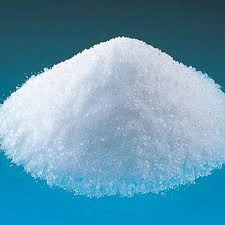Cellulose for Industrial Applications A Multifaceted Resource
Cellulose, a polysaccharide composed of numerous glucose units connected by β(1→4) glycosidic bonds, is the most abundant organic polymer on Earth. Found predominantly in the cell walls of plants, it serves as a vital structural component. While cellulose is often associated with agricultural and food industries, its industrial applications are vast and varied, demonstrating its importance in contemporary manufacturing and processing sectors.
Cellulose for Industrial Applications A Multifaceted Resource
In addition to the paper industry, cellulose is an essential component in textile manufacturing. It serves as a key ingredient in the production of fibers like rayon and lyocell, which are derived from regenerated cellulose. These fibers are valued for their breathability, softness, and biodegradability, making them increasingly popular in sustainable fashion and textiles.
cellulose for industrial

Moreover, cellulose has gained attention in the pharmaceutical industry for its role as an excipient. Microcrystalline cellulose, a refined form of cellulose, is widely used in tablet formulations as a binding agent and filler. Its inert nature and ability to form compressible powders make it an ideal choice for controlled drug release systems, improving the effectiveness and stability of medications.
In the realm of renewable energy, cellulose is being explored as a biofuel source. Cellulosic ethanol, produced through the fermentation of cellulose from plant biomass, has the potential to reduce reliance on fossil fuels and lower greenhouse gas emissions. The conversion of cellulose into biofuels not only provides a sustainable energy source but also promotes agricultural waste utilization, adding economic value to otherwise discarded materials.
Cellulose derivatives, such as carboxymethyl cellulose and cellulose acetate, have additional industrial applications. Carboxymethyl cellulose is commonly used as a thickening agent in foods, cosmetics, and pharmaceuticals. Meanwhile, cellulose acetate is used in the production of synthetic fibers, photographic films, and membranes for filtration, showcasing cellulose's versatility across varied industries.
In conclusion, cellulose is a powerhouse of potential for industrial applications. Its natural abundance, sustainability, and versatility make it an invaluable resource in numerous sectors, including paper manufacturing, textiles, pharmaceuticals, renewable energy, and food production. As industries seek to transition towards more sustainable practices, cellulose stands out as a champion in the quest for eco-friendly alternatives. Embracing cellulose not only supports innovative solutions but also contributes to a greener future, redefining how we utilize one of nature's most remarkable materials.
-
The Application and Significance of Construction RdpNewsMay.19,2025
-
Industrial Grade HpmcNewsMay.19,2025
-
Building Coating Adhesive Building Coating Adhesive HpmcNewsMay.19,2025
-
Application Of Hpmc For Detergent For Detergent In DetergentsNewsMay.19,2025
-
Application Of Hpmc Cellulose In Cement-Based MaterialsNewsMay.19,2025
-
Application Of High Quality Hpmc For Construction In The Field Of ConstructionNewsMay.19,2025




